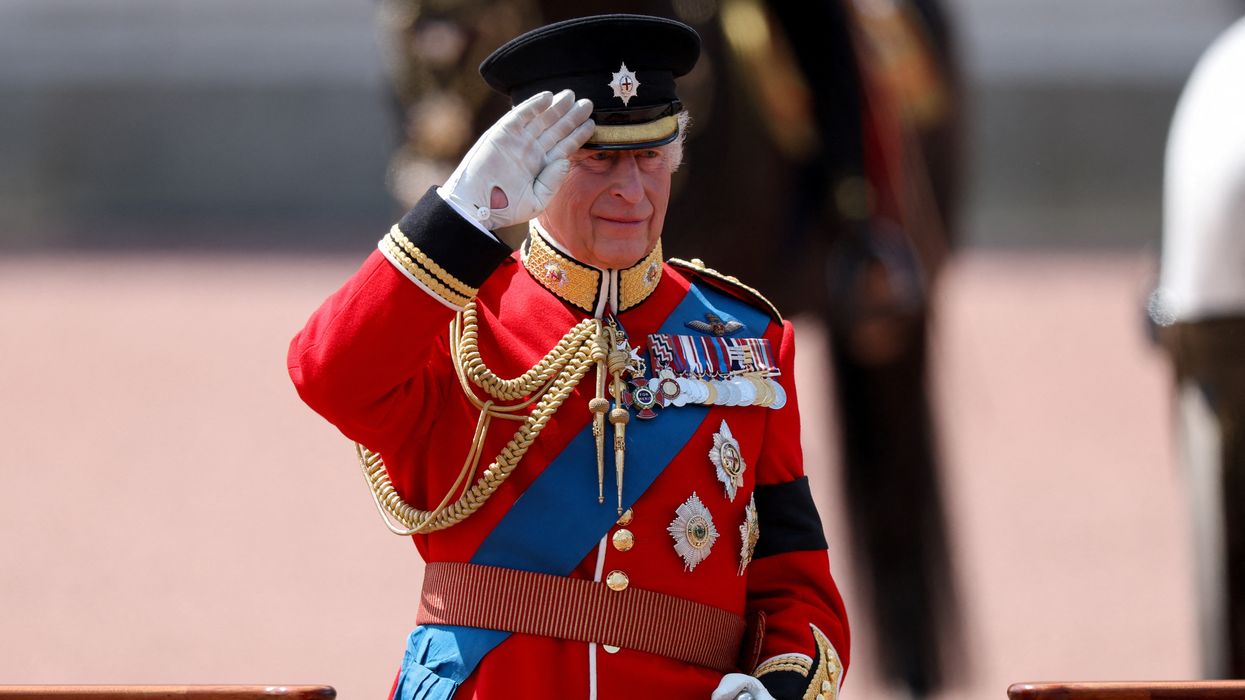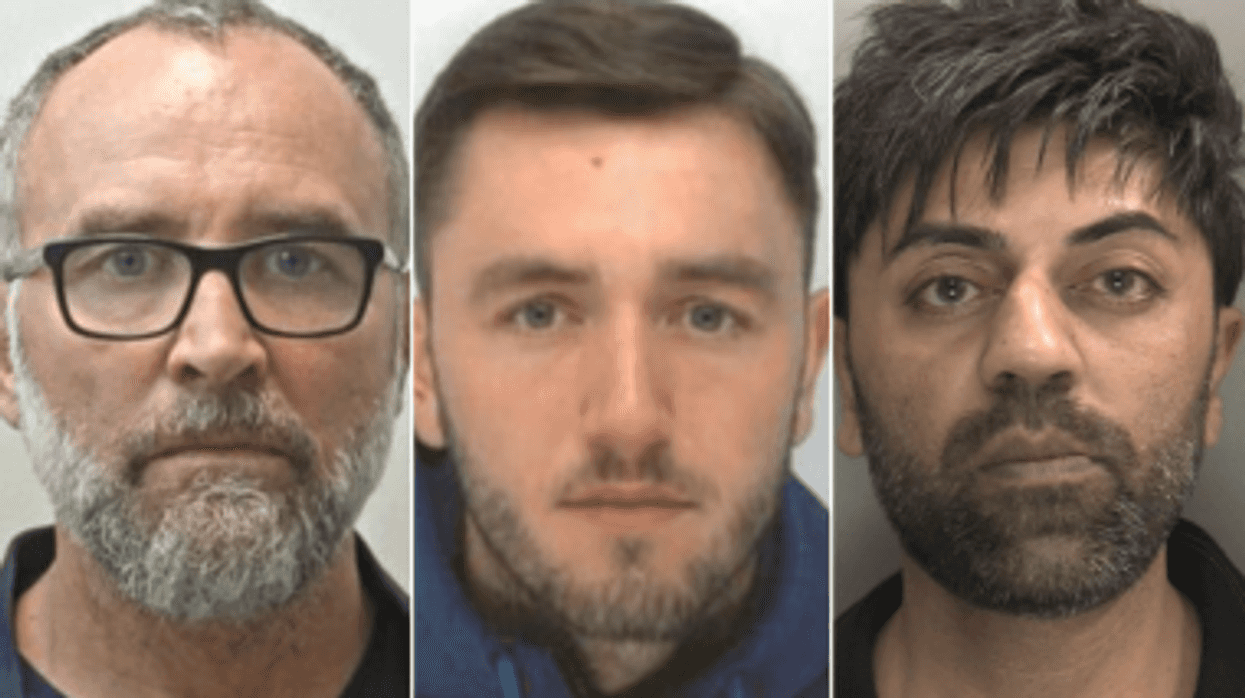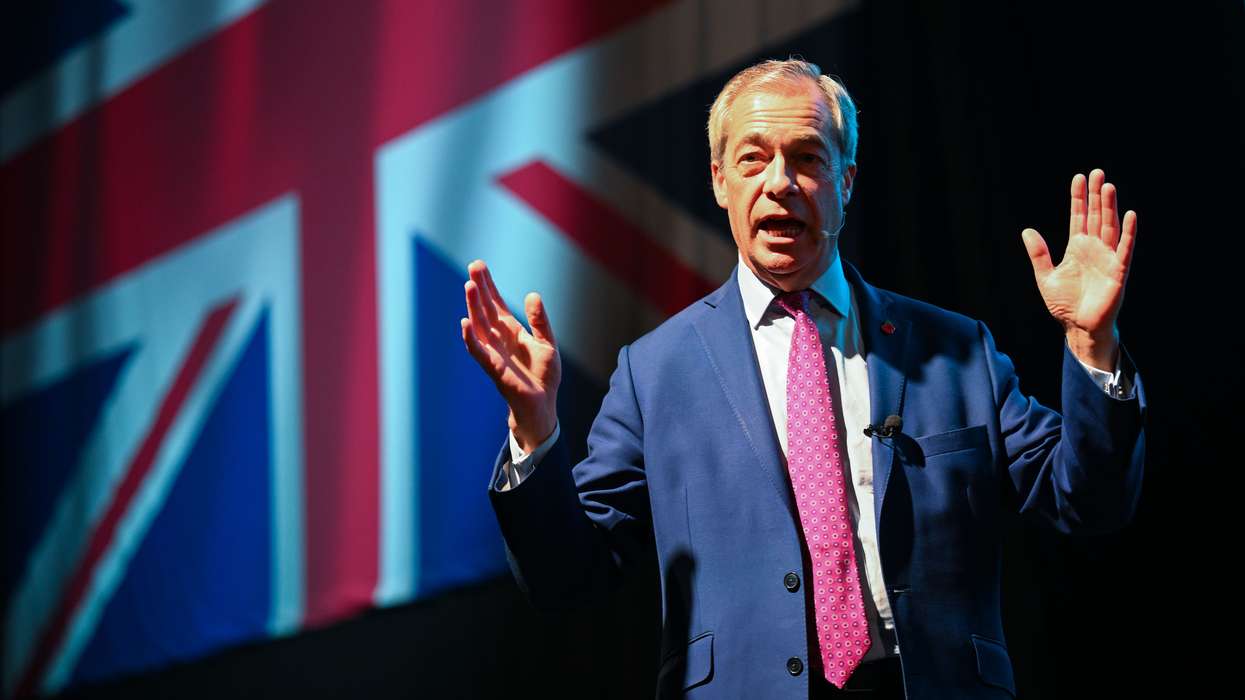A MINUTE's silence for the victims of the Air India plane crash was observed on Saturday during the Trooping the Colour parade in London marking King Charles's official birthday. Some members of the royal family wore black armbands during the ceremony.
A Buckingham Palace spokesperson said King Charles, 76, had requested changes to the parade “as a mark of respect for the lives lost, the families in mourning and all the communities affected by this awful tragedy”.
The crash on Thursday involved a Boeing 787-8 Dreamliner that was taking off from Ahmedabad in eastern India and heading to London's Gatwick Airport. A total of 279 people, including passengers, crew and individuals on the ground, were killed.
Among the victims were 52 Britons. The only survivor identified so far is British national Vishwash Kumar Ramesh from Leicester.
Following the disaster, King Charles said in a written statement that he was “desperately shocked by the terrible events” and extended his “deepest possible sympathy”.
Royal family attends parade
Trooping the Colour is a military tradition that dates back over 200 years and marks the monarch's official birthday. The event begins at Buckingham Palace, proceeds down The Mall, and concludes at Horse Guards Parade, where the King receives a royal salute and inspects the troops.
Hundreds of people gathered along The Mall and outside the palace to view the event. A small group of anti-monarchy protesters were present, carrying yellow signs that read “not my king” and “down with the crown”.
King Charles, who continues weekly treatment for an unspecified cancer, was accompanied by Queen Camilla. Also present were Prince William, 42, his wife Catherine, and their children George, 11, Charlotte, 10, and Louis, seven.
No appearance by Harry and Meghan
Catherine, 43, the Princess of Wales, had earlier announced in March 2024 that she had been diagnosed with an unspecified cancer. In January 2025, she said she was “in remission” and has since gradually resumed public engagements.
Prince Harry and his wife Meghan did not attend the event. The couple stepped down from royal duties in 2020 and now live in the United States. Reports in the UK media suggest that relations between Harry and other members of the royal family remain strained, with minimal communication between him and his brother William.
Although Trooping the Colour is held in June, King Charles was born in November. The tradition of a second birthday celebration was introduced in 1748 by King George II to ensure the monarch’s birthday could be marked in better weather.
Saturday's parade coincided with a major military parade in Washington led by US President Donald Trump on his 79th birthday.
(With inputs from agencies)





